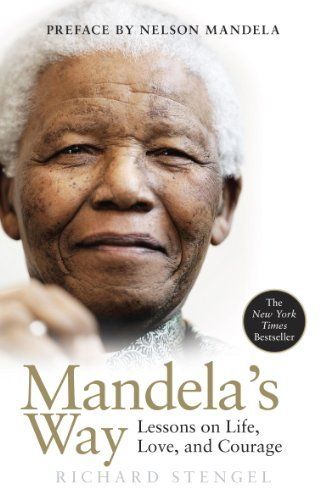Mandela’s Way: Fifteen Lessons on Life, Love, and Courage is a book based on journalist Richard Stengel’s conversations with Nelson Mandela. During one of their talks, Stengel asked Mandela about how he became such an effective leader during the dark days of apartheid.

Mandela explained that sometimes one has to lead “from the front.” It means being seen as leading; it means stepping forward and standing up to one’s oppressors. But leading from the front, Mandela explained, often “means doing things that did not necessarily attract attention.” Leading means extending small kindnesses and compassion to the most vulnerable and struggling. Leading from the “front” means lifting others up by one’s own confidence in their shared cause.
But Mandela also learned the importance of leading “from the back.” That wisdom, he said, was learned from herding his mother’s cattle as a boy:
“You know, when you want to get the cattle to move in a certain direction, you stand at the back with a stick, and then you get a few of the cleverer cattle to go to the front and move in the direction that you want them to go. The rest of the cattle follow the few more-energetic cattle in the front, but you are really guiding them from the back . . . That is how a leader should do his work.”
Stengel writes of Mandela’s explanation:
“The story is a parable, but the idea is that leadership at its most fundamental is about moving people in a certain direction — usually through changing the direction of their thinking and their actions. And the way to do that is not necessarily by charging out front and saying, ‘Follow me,’ but by empowering or pushing others to move forward ahead of you. It is through empowering others that we impart our own leadership or ideas. It is valuable in every arena of life. We see it in the workplace when a manager encourages her employees to help formulate new strategies. We see it at home when parents have a family meeting to guide their children toward sensible rules and behaviour, rather than simply laying down the law.”
I think that Barack Obama said the same thing in his inauguration speech when he said “authority comes not from the power to enforce but from the ability to inspire.”
Today’s Gospel portrays Jesus as a teacher who possesses an “authority” that is immediately perceived by his hearers as centred in the example of his own compassion and empathy for those he has been called to serve. Such an authority comes not from the power to coerce but from the ability to inspire. Nelson Mandela understood that model of authority: to empower others to realize the best that they’re capable of becoming; to move people forward not by edict but by example, not by fear but by hope. Jesus sees his call to “lead” as a trust, as a responsibility to serve others by revealing, not a God of judgment and vengeance, but the God who calls us to compassion and mercy for the sake of his Kingdom of peace.